
Mystical Mopti: Mali's Venice of the Sands
Nestled at the confluence of the Niger and Bani rivers, Mopti is often referred to as the Venice of Africa. This bustling port city is a vibrant tapestry of cultures, colors, and commerce. As you wander through the lively markets, you will be enveloped by the rich aroma of spices, the vibrant display of traditional textiles, and the harmonious sounds of local music. Mopti is a melting pot where diverse ethnic groups such as the Fulani, Bambara, and Bozo coexist, contributing to its unique cultural mosaic. The city's riverside location makes it a hub for river transport and trade. The bustling port area is always teeming with pirogues (traditional wooden boats), loading and unloading goods. A boat trip on the Niger River offers a unique perspective of Mopti's daily life and stunning views of its architectural marvels, including the iconic Grand Mosque, built in the Sudano-Sahelian style. For history enthusiasts, Mopti offers a gateway to the ancient city of Djenné, home to one of Africa's most famous mud-brick structures, the Grand Mosque of Djenné. The journey to Djenné takes you through picturesque landscapes and offers a glimpse into the region's rich history and heritage. Whether you're exploring its vibrant markets, cruising down the Niger River, or delving into its historical treasures, Mopti promises an unforgettable cultural experience.
Local tips in Mopti
- Visit the market early in the morning to avoid the crowds and experience it at its liveliest.
- Take a guided tour of the Grand Mosque to learn about its history and architectural significance.
- A boat trip on the Niger River is a must to see the city from a different perspective.
- If planning a trip to Djenné, check the market day schedule to coincide your visit with the weekly market.
- Respect local customs and dress modestly, especially when visiting religious sites.
Mystical Mopti: Mali's Venice of the Sands
Nestled at the confluence of the Niger and Bani rivers, Mopti is often referred to as the Venice of Africa. This bustling port city is a vibrant tapestry of cultures, colors, and commerce. As you wander through the lively markets, you will be enveloped by the rich aroma of spices, the vibrant display of traditional textiles, and the harmonious sounds of local music. Mopti is a melting pot where diverse ethnic groups such as the Fulani, Bambara, and Bozo coexist, contributing to its unique cultural mosaic. The city's riverside location makes it a hub for river transport and trade. The bustling port area is always teeming with pirogues (traditional wooden boats), loading and unloading goods. A boat trip on the Niger River offers a unique perspective of Mopti's daily life and stunning views of its architectural marvels, including the iconic Grand Mosque, built in the Sudano-Sahelian style. For history enthusiasts, Mopti offers a gateway to the ancient city of Djenné, home to one of Africa's most famous mud-brick structures, the Grand Mosque of Djenné. The journey to Djenné takes you through picturesque landscapes and offers a glimpse into the region's rich history and heritage. Whether you're exploring its vibrant markets, cruising down the Niger River, or delving into its historical treasures, Mopti promises an unforgettable cultural experience.
When is the best time to go to Mopti?
Iconic landmarks you can’t miss
Tower Of Africa
Explore Mali's rich history and culture at the Tower of Africa, a heritage museum with panoramic views of Bamako.
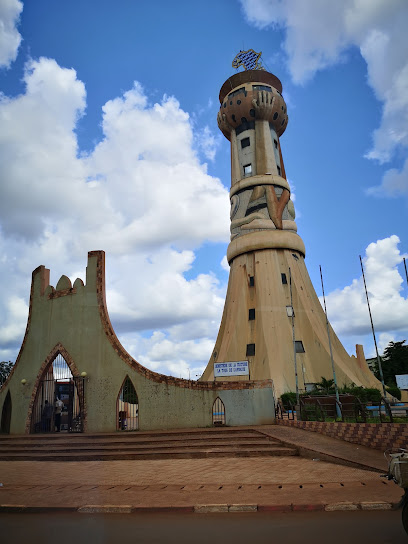
Mali National Park.
Escape to nature in the heart of Bamako at Mali National Park, a green sanctuary offering diverse activities and cultural connections.
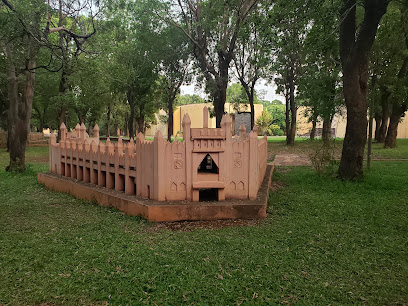
ZOO NATIONAL DU MALI
Experience Mali's wildlife at Bamako's Zoo National: a vibrant destination for animal lovers, families, and those seeking a connection with nature.
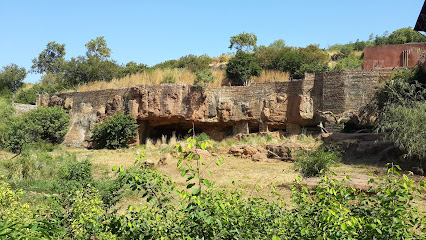
Baréma-Bocoum-Mopti Starium
Discover the vibrant atmosphere of Baréma-Bocoum-Mopti Starium, the largest stadium in Mopti, where sports and culture unite in Mali.
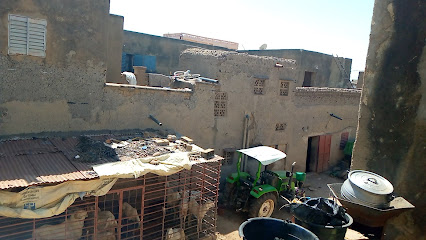
Grand Mosque of Mopti
Discover the Grand Mosque of Mopti, a stunning example of Sudano-Sahelian architecture and a testament to Mali's rich cultural heritage.
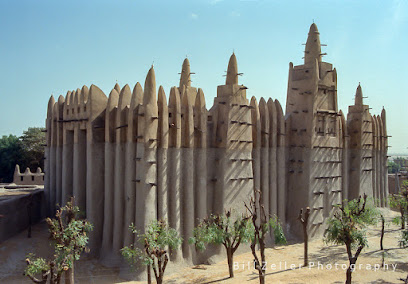
Restaurant Bar Bozo
Experience authentic Malian flavors at Restaurant Bar Bozo in Mopti – where vibrant cuisine meets warm hospitality.
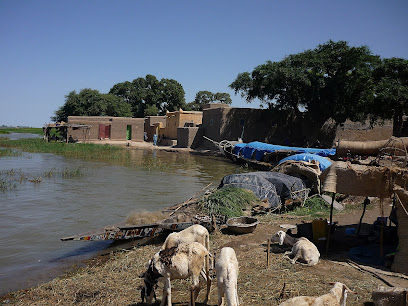
Grande Mosquée de Taïkiri
Discover the architectural and spiritual heart of Mopti at the Grande Mosquée de Taïkiri, a stunning example of Sahelian design.
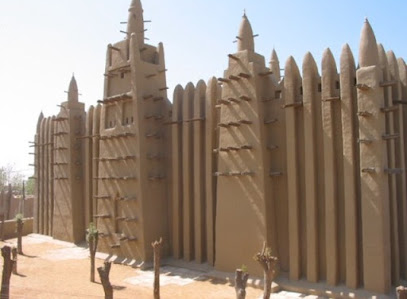
Grande Mosquée de Mopti-Sud
Discover Mopti's iconic Grande Mosquée: a stunning example of Sudanese architecture and a testament to Mali's rich cultural heritage.

Mopti Mali
Discover Mopti, Mali: a vibrant port city on the Niger River, offering cultural riches, bustling markets, and stunning Sahelian architecture.
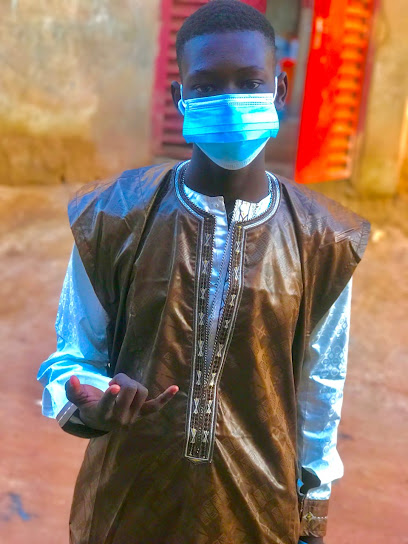
Mosquée Misire
Discover the Misire Mosque in Mopti, a stunning example of Sudano-Sahelian architecture and a testament to Mali's Islamic heritage.

Mopti Garden
Discover Mopti Garden in Sevare, Mali: a tranquil escape filled with vibrant flora, soothing sounds, and natural beauty.
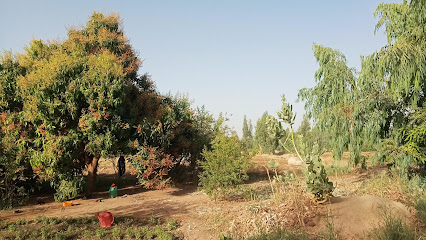
Voiri carré
Explore the rich heritage of Mali at Voiri Carré, a captivating historical landmark in Mopti, revealing the essence of Malian culture and tradition.
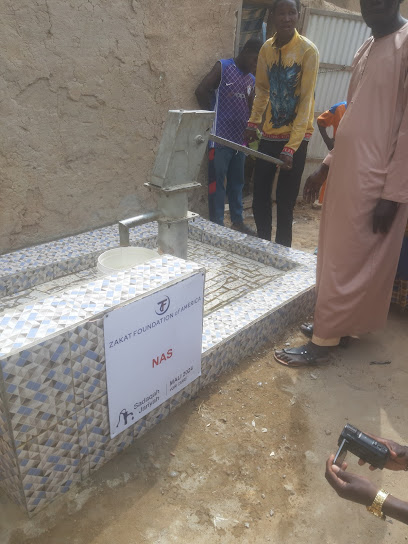
Unmissable attractions to see
Yacouba Guindo Mosque
Explore the architectural beauty and spiritual essence of Yacouba Guindo Mosque, a serene landmark in the heart of Bamako, Mali.
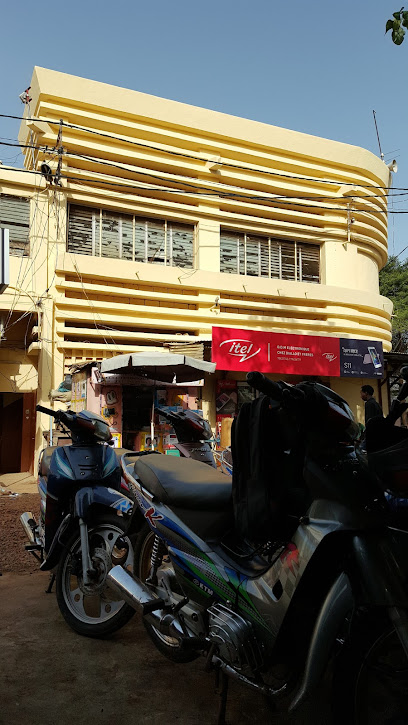
Great Mosque of Djenne
Discover the Great Mosque of Djenne, a UNESCO World Heritage Site, and the largest mud-brick structure in the world, rich in cultural and architectural significance.
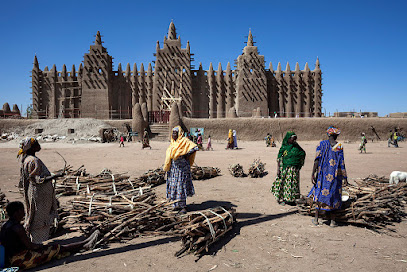
Grand Mosque of Mopti
Explore the Grand Mosque of Mopti, a stunning architectural gem that embodies Mali's rich cultural heritage and invites visitors to experience its serene atmosphere.
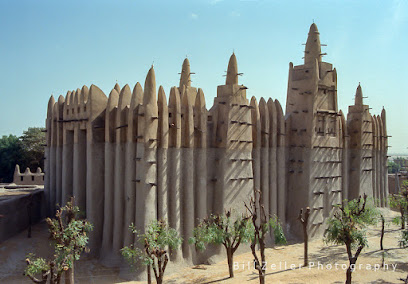
La Dune Rose
Discover the enchanting beauty of La Dune Rose in Koïma, where stunning pink sands meet endless adventure and relaxation.
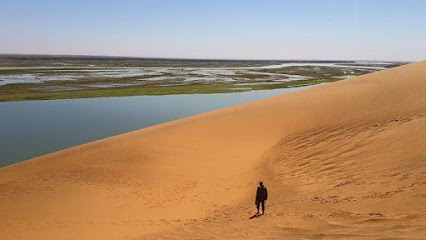
Mopti Garden
Experience the serene beauty of Mopti Garden, a tranquil oasis in Sevare, Mali, perfect for relaxation, exploration, and connecting with nature.
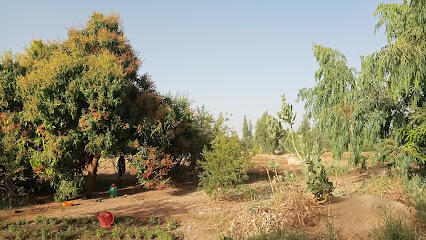
Boulevard de Oumar H Toure
Experience the tranquility of Boulevard de Oumar H Toure in Bankass, a perfect park for relaxation, picnic, and enjoying nature's beauty.
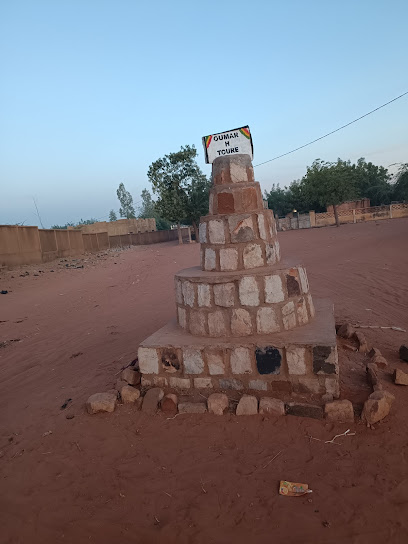
Iréli Niéné
Experience the cultural richness and natural beauty of Iréli Niénéné in Sangha Ogol Leye, a hidden gem in Mali perfect for curious travelers.
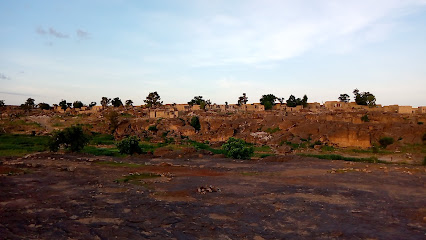
Bar madisson
Experience the vibrant culture and lively atmosphere at Bar Madisson, a must-visit tourist attraction in Sevare, Mali, perfect for socializing and sampling local flavors.

Les amis de la nature
Discover tranquility in Mali at Les Amis de la Nature, where lush green landscapes and serene atmospheres await every traveler.

ZONE VERGER SEVARE
Immerse yourself in the serene beauty of ZONE VERGER SEVARE, a peaceful garden escape in the heart of Sevare, Mali, perfect for relaxation and exploration.

Lougal
Explore Lougal, a tranquil garden in Korientzé, offering lush greenery, vibrant flowers, and serene pathways for a peaceful escape into nature.

Tidjane
Explore the lush greenery and diverse flora of Tidjane Botanical Garden in Sevare, a serene escape for nature lovers and tourists alike.

Le grand barrage de Doundioulou
Explore the stunning Le Grand Barrage de Doundioulou, a unique tourist attraction in Mali that combines breathtaking views with rich cultural heritage.

Agricole Camarala Garden
Explore the beauty of Agricole Camarala Garden in Fatoma, a serene escape filled with vibrant flora and cultural experiences.

Diabi
Discover the enchanting beauty of Diabi's serene garden, a tranquil oasis for relaxation, photography, and nature appreciation.

Essential places to dine
Zeina café
Discover authentic Malian cuisine at Zeina Café in Sevare - where local flavors meet warm hospitality.
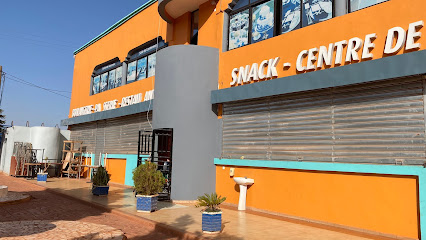
Restaurant Damou
Experience authentic Malian flavors at Restaurant Damou in Sevare – where every meal tells a story.
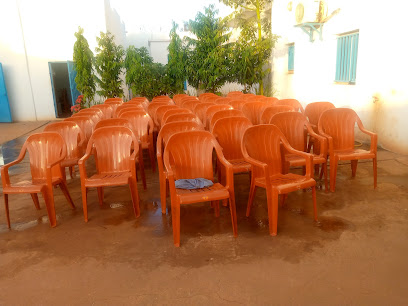
Restaurant Bar Bozo
Experience authentic Malian cuisine at Restaurant Bar Bozo in Mopti – where every meal is a celebration of flavors and culture.
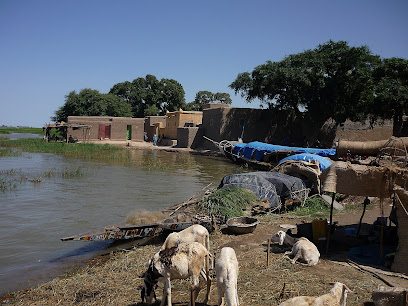
Yeredeme
Experience authentic Malian cuisine at Yeredeme in Mopti - where every dish tells a story and every visit feels like home.
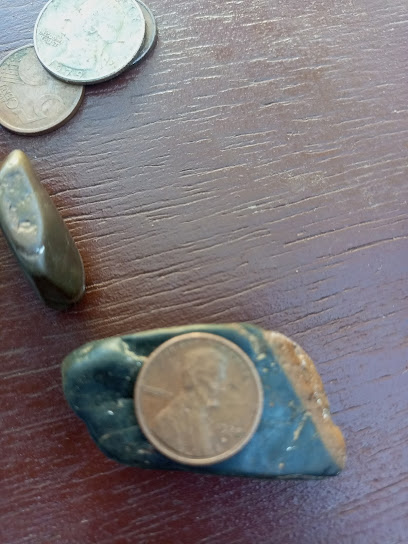
Restaurant Baramuso
Savor authentic Malian flavors at Restaurant Baramuso in Mopti - where tradition meets taste in every bite.
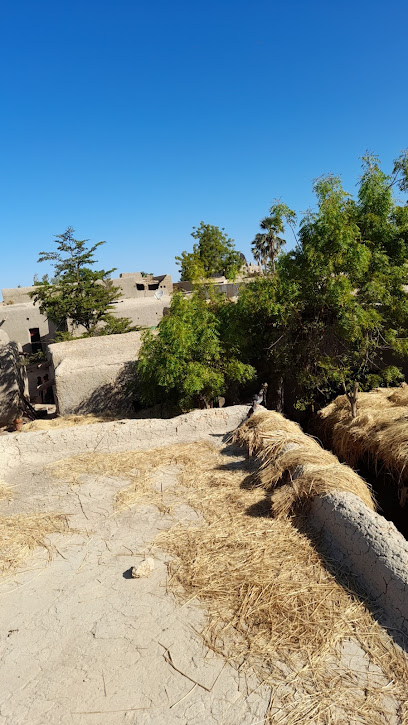
Zeina café Mopti
Discover authentic Malian flavors at Zeina Café in Mopti - where every dish tells a story.
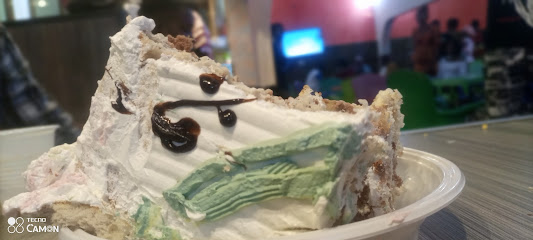
Restaurant Sigui Mopti
Discover authentic Malian cuisine at Restaurant Sigui Mopti - where every dish tells a story amidst vibrant cultural heritage.
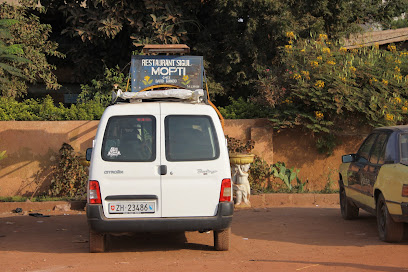
Markets, malls and hidden boutiques
Boutique Halimatou Bello et fils
Discover unique Malian crafts and a rich cultural experience at Boutique Halimatou Bello et fils, a vibrant shopping destination in Mopti.

Sigu Te Mogo Son
Explore Sigu Te Mogo Son, a vibrant shopping mall in Mopti, where local culture meets modern retail for an unforgettable experience.
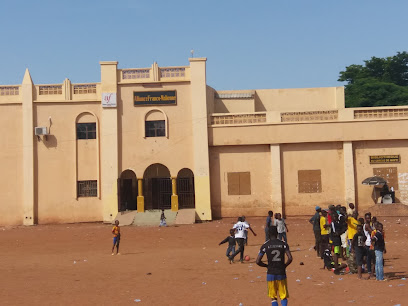
Songhoy Shop Art Club
Explore the Songhoy Shop Art Club in Mopti, a vibrant shopping mall celebrating local artisans and the rich culture of Mali with unique crafts and artwork.
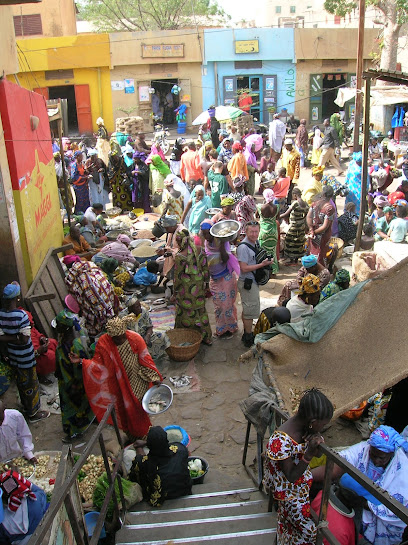
ETS Cam Cgps
Explore the vibrant ETS Cam Cgps Shopping Mall in Mopti, where local culture meets modern shopping in a lively atmosphere.
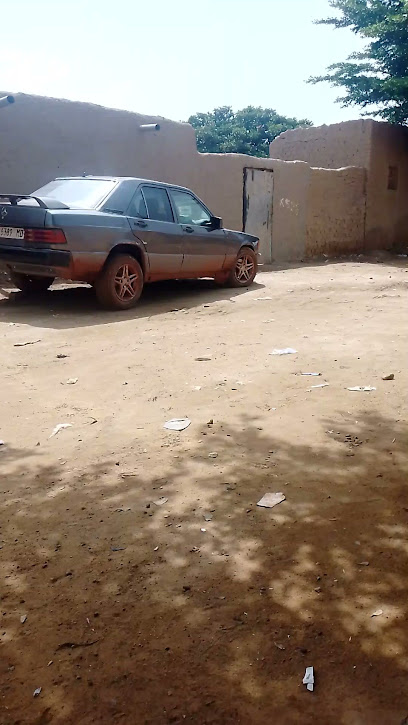
Jigiseme
Experience the heart of Mopti at Jigiseme Shopping Mall, where local crafts and cuisine come together in a vibrant shopping paradise.

IGM
Discover the vibrant IGM Shopping Mall in Mopti, where local culture meets shopping and dining in the heart of Mali.

Boulangerie de la Venise (MOPTI-BURU)
Experience the delightful flavors of Mali at Boulangerie de la Venise, a charming bakery in Mopti offering freshly baked breads and pastries.
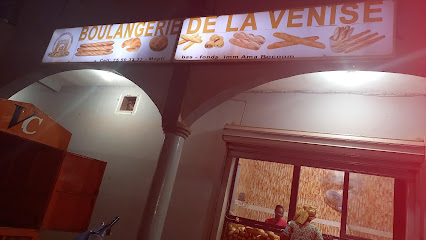
Boulangerie de la venise
Experience the authentic tastes of Mopti at Boulangerie de la Venise, where traditional baking meets local culture in every delightful bite.
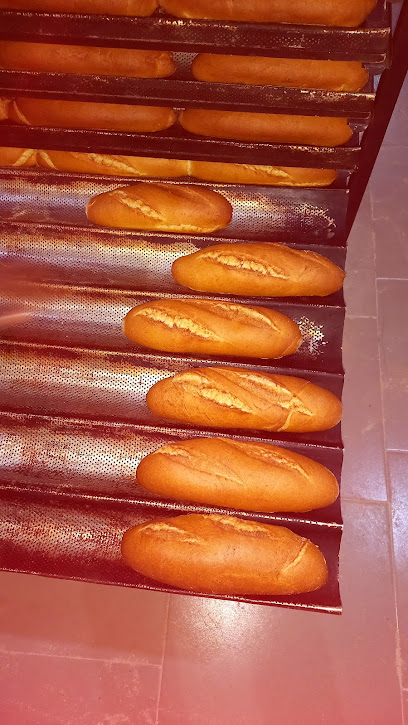
Commerce
Discover the vibrant spirit of Mopti at the Commerce Shopping Mall, where local culture meets modern shopping in a unique blend.
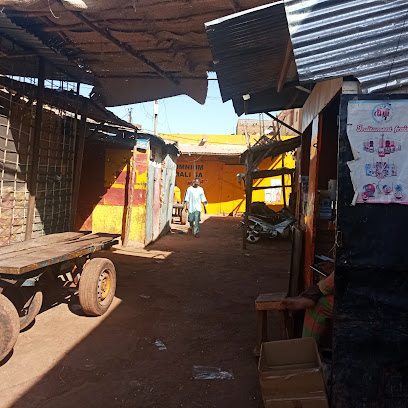
NEW MDR MALL
Explore the NEW MDR MALL in Bazar, a shopping haven filled with diverse brands, delicious food, and family-friendly entertainment options.

Friperie Pap Sam
Discover Friperie Pap Sam, Bougoufé's premier used clothing store, where vintage treasures await in a vibrant and sustainable shopping environment.
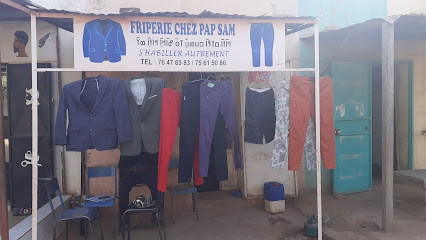
Daya Électronique
Discover top-quality household appliances at Daya Électronique in Mopti, your one-stop shop for essential home products.
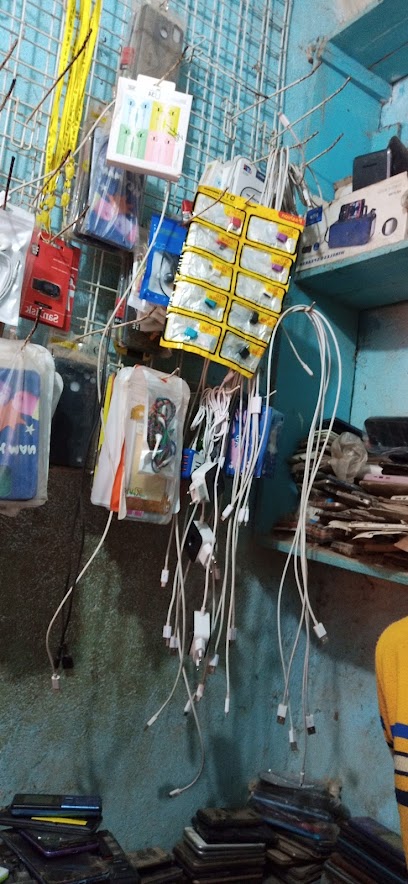
Boutique SUDALIMENT Chez Mama KANITA
Explore Boutique SUDALIMENT Chez Mama KANITA in Mopti for authentic Malian crafts, vibrant culture, and a unique shopping experience.
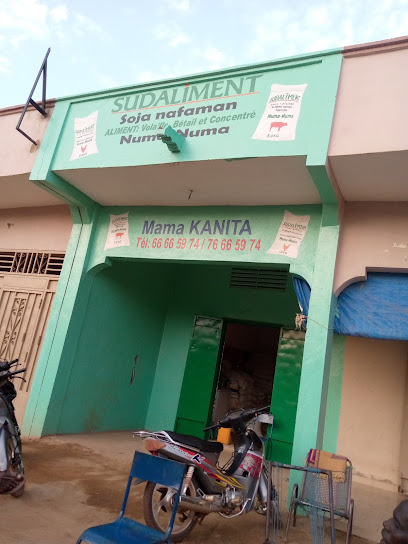
Traore Frères & Compagnie
Explore the rich textile heritage of Mali at Traore Frères & Compagnie, a vibrant haberdashery and fabric store in Mopti.
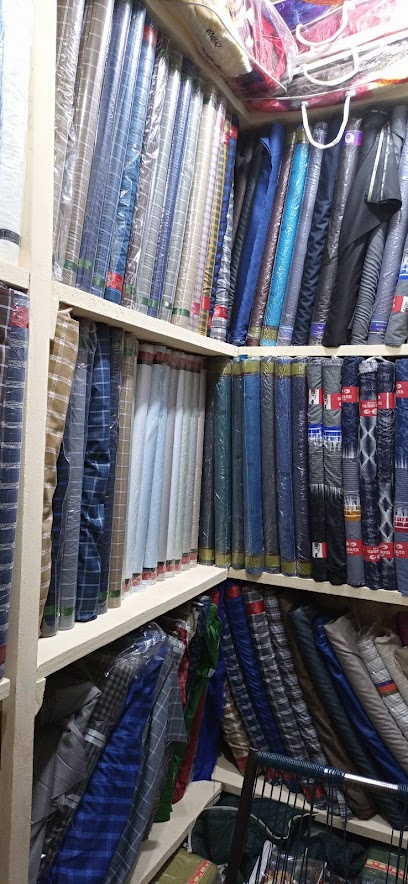
Djok_fashion
Explore the vibrant fashion scene at Djok_fashion in Mopti, where local craftsmanship meets contemporary style for unique accessories.
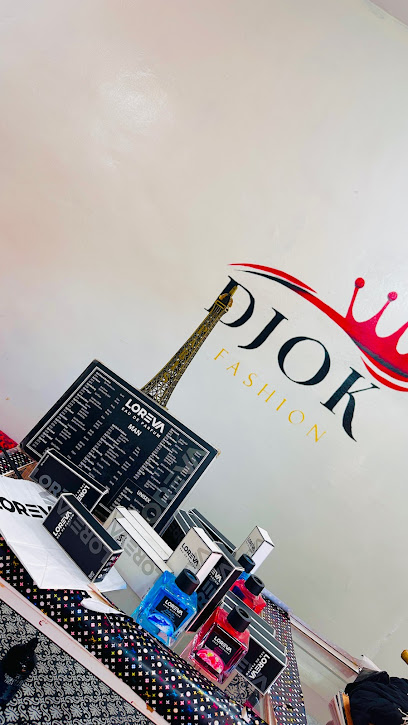
Essential bars & hidden hideouts
Ambedjele Resort hotel restaurant
Experience the perfect blend of comfort and local hospitality at Ambedjele Resort hotel restaurant in Mopti, a serene getaway for every traveler.
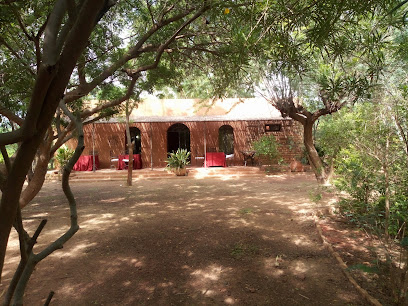
Venise Night Club
Experience the vibrant nightlife of Sevare at Venise Night Club, a lively bar famous for its energetic atmosphere and delightful cocktails.
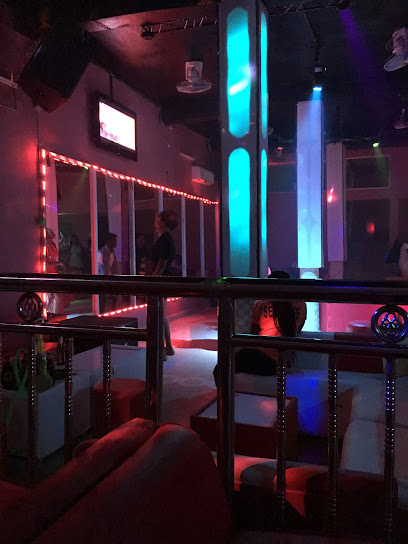
Petit Cabaret
Discover the rich flavors of West Africa at Petit Cabaret, a culinary gem in Sévaré offering authentic dishes and vibrant ambiance.
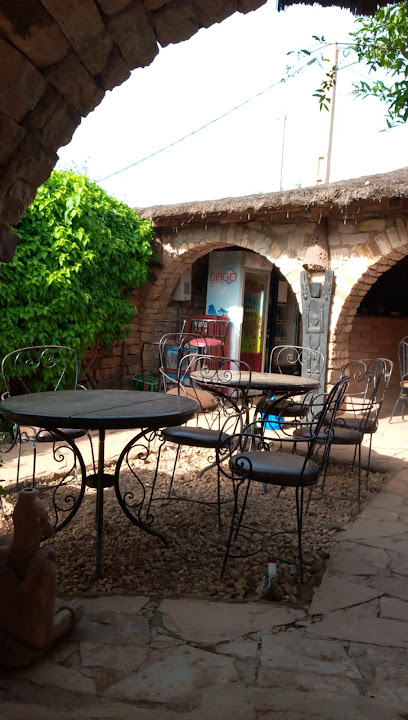
Restaurant Bar Bozo
Experience the vibrant flavors of Mali at Restaurant Bar Bozo in Mopti, where local cuisine meets a lively atmosphere for an unforgettable dining experience.
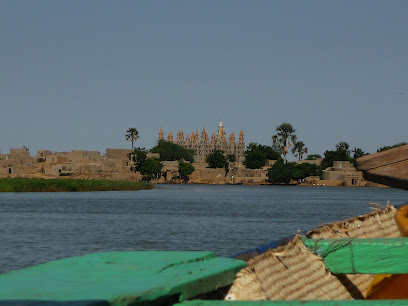
Chez Lili
Experience the vibrant culture of Mali at Chez Lili, a cozy bar in Sévaré offering local drinks and a warm atmosphere for all travelers.
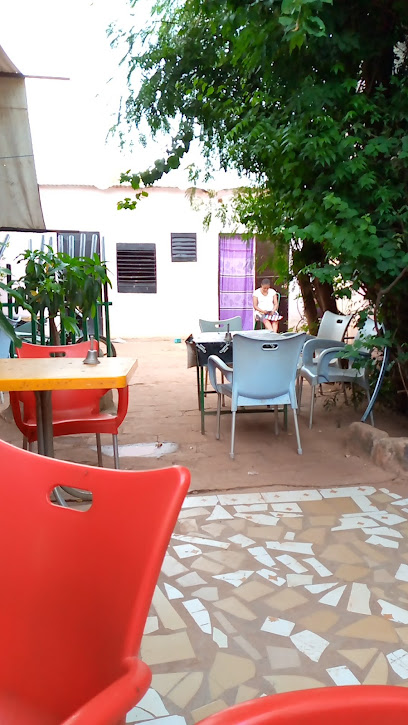
Yeredeme
Experience the authentic flavors of Mali at Yeredeme, a must-visit restaurant in Mopti offering traditional dishes in a vibrant setting.
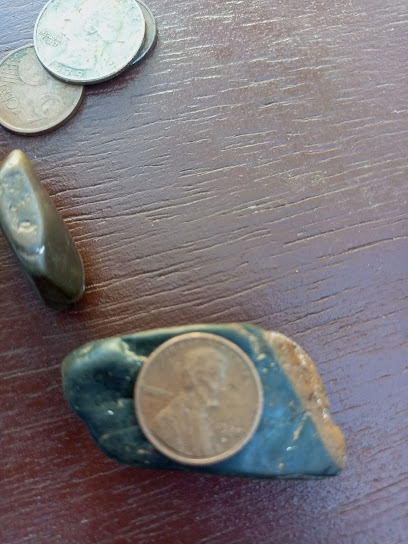
Lounge At Home
Discover the vibrant atmosphere of Lounge At Home in Sévaré, where great drinks meet local culture in an inviting bar setting.
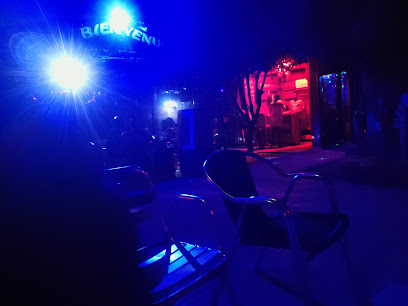
Restaurant Baramuso
Experience the vibrant flavors of Mali at Restaurant Baramuso in Mopti, where local cuisine meets a warm, inviting atmosphere.
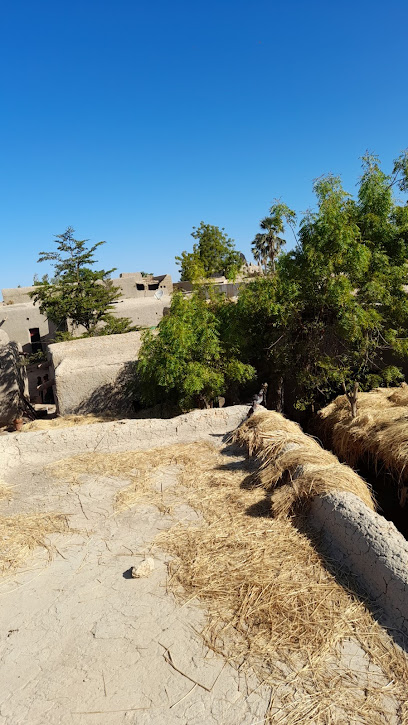
Zeina café Mopti
Zeina Café in Mopti: Experience the rich culinary traditions of Mali in a vibrant and inviting atmosphere.
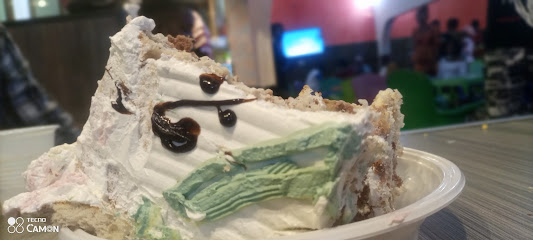
Fatouamta
Experience the authentic tastes of Mali at Fatouamta, a culinary haven in Mopti that delights every palate with traditional dishes and warm hospitality.

Refuge Night Club/Mopti
Discover the vibrant nightlife of Mopti at Refuge Night Club, where music, dance, and culture come together for an unforgettable experience.

Bar madisson
Experience the vibrant culture and lively atmosphere at Bar Madisson in Sevare, the perfect spot for drinks and local connections.

TEST
Experience the authentic tastes of Mali at this vibrant restaurant in the heart of Mopti, where every dish is a celebration of local culture.

Bunker
Experience the vibrant nightlife at Bunker Bar, Sevare's cozy retreat for locals and travelers alike, offering delightful drinks and live entertainment.

Local Phrases about Mopti
-
- HelloI ni ce
[ee nee chay] - GoodbyeI kɔrɔ ka
[ee koh-roh kah] - YesAwɛ
[ah-way] - NoAyo
[ah-yoh] - Please/You're welcomeI kɛ
[ee kay] - Thank youI ni ce
[ee nee chay] - Excuse me/SorryN'tɛnɛ
[nn-tay-nay] - How are you?I ka kɛy
[ee kah kay] - Fine. And you?N'a be kɛy
[nah bay kay] - Do you speak English?Ka fɔ sare inɡilisi kɔ?
[kah foh sah-ray een-gee-lee-see koh] - I don't understandN'a kɔnɔ
[nah koh-noh]
- HelloI ni ce
-
- I'd like to see the menu, pleaseN'a ka tɛmɛnɛ na, I kɛ
[nah kah tay-may-nay nah, ee kay] - I don't eat meatN'a mi ka nyama
[nah mee kah nyah-mah] - Cheers!I kɔrɔ ka
[ee koh-roh kah] - I would like to pay, pleaseN'a ka sara, I kɛ
[nah kah sah-rah, ee kay]
- I'd like to see the menu, pleaseN'a ka tɛmɛnɛ na, I kɛ
-
- Help!Kɔ
[koh] - Go away!Kɔ
[koh] - Call the Police!Kɛlɛ bɛɛni
[kay-lay bay-nee] - Call a doctor!Kɛlɛ filani
[kay-lay fee-lah-nee] - I'm lostN'a bɔ kɔ
[nah boh koh] - I'm illN'a sɛgɛ
[nah say-guh]
- Help!Kɔ
-
- I'd like to buy...N'a ka sara
[nah kah sah-rah] - I'm just lookingN'a ka tɛmɛnɛ
[nah kah tay-may-nay] - How much is it?N'a kɛ bɔ kɔnɔ?
[nah kay boh koh-noh] - That's too expensiveDɔgɔrɔ kɛ bɔ kɔnɔ
[doh-goh-roh kay boh koh-noh] - Can you lower the price?I kɛ tɛnɛ bɔ kɔnɔ?
[ee kay tay-nay boh koh-noh]
- I'd like to buy...N'a ka sara
-
- What time is it?I ka fɔ?
[ee kah foh] - It's one o'clockFuru kɔnɔ
[foo-roo koh-noh] - Half past (10)Nun
[noon] - MorningDon
[dohn] - AfternoonTanni
[tahn-nee] - EveningKibaru
[kee-bah-roo] - YesterdayKunu
[koo-noo] - TodayKɛ
[kay] - TomorrowSaya
[sah-yah] - 1Kelen
[kay-lehn] - 2Filan
[fee-lahn] - 3Saba
[sah-bah] - 4Nana
[nah-nah] - 5Dɔro
[doh-roh] - 6Dɔrɔgɔ
[doh-roh-goh] - 7Kuuru
[koo-roo] - 8Wɛrɛ
[way-ray] - 9Sɔlon
[soh-lohn] - 10Tani
[tahn-nee]
- What time is it?I ka fɔ?
-
- Where's a/the...?I ka tɔn?
[ee kah tohn] - What's the address?I ka kɛlɛ
[ee kah kay-lay] - Can you show me (on the map)?I ka sɛrɛ dɔn (ka kɔnɔn nin)?
[ee kah say-ray dohn (kah koh-noh-nohn neen)] - When's the next (bus)?N'a tɛnɛ (bisi) da?
[nah tay-nay (bee-see) dah] - A ticket (to ....)Tikitɛ (tɔ ....)
[tee-kee-tay (toh)]
- Where's a/the...?I ka tɔn?
History of Mopti
-
Mopti, often referred to as the 'Venice of Mali,' was founded in the 19th century as a small fishing village. Its strategic location at the confluence of the Niger and Bani Rivers made it an ideal spot for trade and settlement. Over time, Mopti grew into a bustling city, becoming an essential hub for commerce and culture in the region.
-
In the late 19th and early 20th centuries, Mopti, like much of Mali, came under French colonial rule. The French developed the city as an administrative center, constructing significant infrastructure including roads, schools, and healthcare facilities. This period also saw the introduction of new agricultural techniques and crops, which had a lasting impact on the region’s economy.
-
By the mid-20th century, Mopti had established itself as a vital economic and cultural hub in Mali. The city’s markets were renowned for their diversity, offering goods from all over West Africa. Mopti’s position on the Niger River facilitated trade routes that connected it to Timbuktu, Gao, and other important cities. The bustling port area became a melting pot of different cultures and traditions, enriching the city's cultural tapestry.
-
The Grand Mosque of Mopti, also known as the Komoguel Mosque, is a significant landmark in the city. Built in the Sudanese architectural style, the mosque was constructed in 1933 during the French colonial period. It serves not only as a place of worship but also as a cultural and historical icon, representing the city’s rich Islamic heritage.
-
Mopti played a vital role in Mali’s journey to independence, which was achieved in 1960. Post-independence, the city continued to grow and modernize, with efforts focused on improving infrastructure and public services. However, Mopti has also faced challenges, including political instability and economic hardships, which have impacted its development trajectory.
-
Mopti is famous for its vibrant cultural festivals, which attract visitors from all over the world. One of the most notable is the Festival on the Niger, an annual event that celebrates the region's music, dance, and arts. These festivals play a crucial role in preserving and promoting the rich cultural heritage of Mopti and its surrounding areas.
-
In recent years, Mopti has faced various challenges, including security issues and economic difficulties. Despite these challenges, the city remains a resilient and vibrant community. Efforts are ongoing to promote tourism, improve local infrastructure, and preserve the cultural and historical sites that make Mopti a unique destination.
Mopti Essentials
-
Mopti is located in central Mali, near the confluence of the Niger and Bani rivers. The nearest international airport is Bamako-Sénou International Airport (BKO) in Bamako, which is approximately 640 kilometers away. From Bamako, you can take a domestic flight to Mopti's Ambodedjo Airport (MZI). Alternatively, you can travel by bus or private car from Bamako to Mopti, a journey that typically takes around 10 to 12 hours by road. There are also riverboat options available during the rainy season, although these can be less predictable.
-
Mopti is a compact city, and many of its attractions are within walking distance. For longer trips within the city or to nearby areas, local taxis and motorbike taxis (moto-taxis) are readily available and relatively inexpensive. Public minibuses, known as 'bush taxis,' operate within Mopti and connect to surrounding towns and villages. Renting a car with a driver is another option for exploring the area, but it is advisable to use a reputable service.
-
The official currency in Mali is the West African CFA franc (XOF). Credit cards are not widely accepted in Mopti, so it is advisable to carry cash. ATMs are available in Mopti, but they can be unreliable, so it is wise to withdraw sufficient cash in Bamako before traveling. Currency exchange services are available in Mopti, but rates may vary. It is also a good idea to carry small denominations for easier transactions.
-
Mopti has experienced periods of instability, and it is essential to stay informed about the current security situation before traveling. Some areas of Mopti have higher crime rates, particularly for crimes targeting tourists, such as pickpocketing and scams. Avoid walking alone at night, especially in less populated areas, and stay vigilant in crowded places. Always follow the advice of local authorities and consider using a local guide to navigate the city safely.
-
In case of emergency, dial 17 for police assistance or 15 for medical emergencies. Mopti has a local police station and several medical facilities, including clinics and a hospital. It is highly recommended to have travel insurance that covers medical emergencies and evacuation. For minor health issues, there are pharmacies in Mopti where you can purchase over-the-counter medications.
-
Fashion: Do dress modestly, especially when visiting religious sites. Avoid wearing revealing clothing. Religion: Do respect local customs and traditions. Always remove your shoes before entering a mosque. Public Transport: Do be respectful and give up your seat to elderly passengers. Don't eat or drink on public transport. Greetings: Do greet people with a handshake or a nod. Using the right hand for greetings and transactions is considered respectful. Eating & Drinking: Do try local dishes and accept food offerings graciously. Don't refuse hospitality, as it can be considered impolite.
-
To experience Mopti like a local, visit the bustling Mopti Market, where you can buy fresh produce, spices, and traditional Malian crafts. Engage with locals, who are often friendly and willing to share stories about their culture and history. Don't miss taking a boat tour on the Niger River to see the vibrant river life and visit nearby fishing villages. For a unique experience, attend a traditional music and dance performance, which is an integral part of Malian culture.
Nearby Cities to Mopti
-
Things To Do in Dédougou
-
Things To Do in Koudougou
-
Things To Do in Bobo-Dioulasso
-
Things To Do in Ouagadougou
-
Things To Do in Ziniaré
-
Things To Do in Bamako
-
Things To Do in Wa
-
Things To Do in Tamale
-
Things To Do in Niamey
-
Things To Do in Sunyani
-
Things To Do in Yamoussoukro
-
Things To Do in Faranah
-
Things To Do in Daloa
-
Things To Do in Voinjama
-
Things To Do in Kumasi








